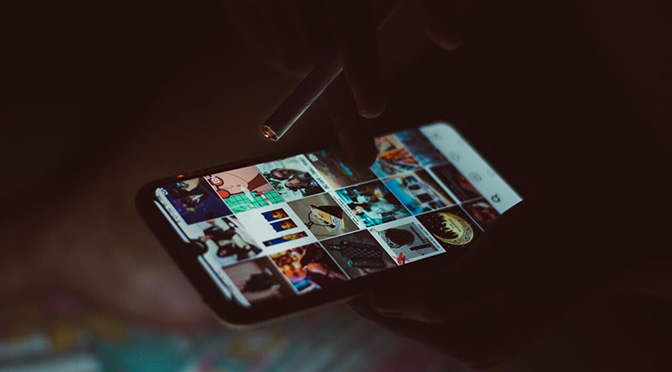What will you look like when you’re old?
This is the question that has, in the last two weeks, driven thousands of smart phone users to their respective app stores to download the latest viral app – FaceApp – a Russian artificial intelligence-powered photo editor that allows users to peer into the future (and the past) by uploading a portrait of themselves and tweaking it with an ‘old’ or ‘young’ filter.
But FaceApp isn’t new. Developed by Russian company Wireless Lab, the app quickly sparked outrage when it launched in 2017 for offering people filters that would make them look like they were of a different race.
Now, the app has once again made front page news and triggered a global social media frenzy because of how realistic the outcome is proving. Using neural networks – artificial intelligence modelled after the human brain that can learn from patterns – FaceApp generates eerily accurate images of what a person will look like in their senior years.
But the resulting images aren’t the only creepy factor in this story. Soon after it shot to the top of the Apple and Google app stores last week, privacy advocates began sounding alarm bells about the vague legalese within FaceApp’s terms and conditions. Before long, the question on everyone’s lips wasn’t “what will I look like in old age”, but “who owns the rights to my face?”
Who has access to my data?
When you use the app, any image you upload is not just used within the app itself but sent to the cloud, where it could be stored indefinitely. Even if you choose to erase the evidence of your older-self from your photo album, the company still have the copy in the cloud. A closer look into the terms and conditions of FaceApp shows that you are giving the app a “perpetual, irrevocable, non-exclusive, royalty-free, worldwide, fully-paid, transferable sub-licensable license” to use and reproduce your image in all media formats “without compensation to you”.
What will FaceApp do with my data?
Theoretically, once you sign up and use the app, the company can do whatever it likes with your photos. If they wanted to, they could plaster your face on a billboard and you would have no legal recourse. This is, of course, highly unlikely – what’s more likely is your image would be used by Russia for facial recognition software development.
While FaceApp’s CEO Yaroslav Goncharov has tried to quell the concerns of its users, it is the use of this word ‘perpetual’ which prevents us from putting our fears to bed about this app. Goncharov said FaceApp deletes “most” of photos from its servers after 48 hours – but that’s hardly a reassuring sentiment from the CEO, since there are no legal guarantees for this in the privacy policy. Wireless Lab, which developed the app, also says users can request that their data be deleted, but the process for doing this is not noted in the policy either.
This is worrying, considering that section 15 of FaceApp’s terms all but prevents you from taking legal action against the company. What they do permit is for users to lodge small claims up to certain limits or seek specific court orders. Any other disputes must be resolved through confidential arbitration held in California.
The good news is, you can opt out of this provision. The bad news is you only have 30 days from registration to do so, meaning most of the app’s 100 million existing users are already too late.
Goncharov states that the company also doesn’t “sell or share any user data with any third parties”, nor is the data transferred to the Russian government authorities. Yet, amid evidence of election interference and other nefarious cybercrimes by Russian hackers, the vaguely-worded terms and conditions have caused the app to be labelled a privacy threat by the Democratic National Committee and Senate Minority Leader Chicl Schumer.
Is FaceApp worth the risk?
Already, data protection experts have raised serious concerns as to whether this app is in breach of consumer privacy and the European Union’s data protection regulation, the GDPR, because it is not clear how it is using people’s data and how long it plans to keep it.
On the surface, FaceApp is just another playful photo-editor with enhanced AI capabilities to create hyper-realistic images. However, according to Alan Woodward, privacy expert at the University of Surrey, there is a hidden danger that most users aren’t taking into account:
“If someone wants to collect personal information for nefarious purposes, one of the easiest ways to do it is to entice people to input the data for what appears to be some ‘fun’ purpose,” he says.
“If you’re not a paying customer, then you will become the product. There’s no such thing as a free lunch.”



